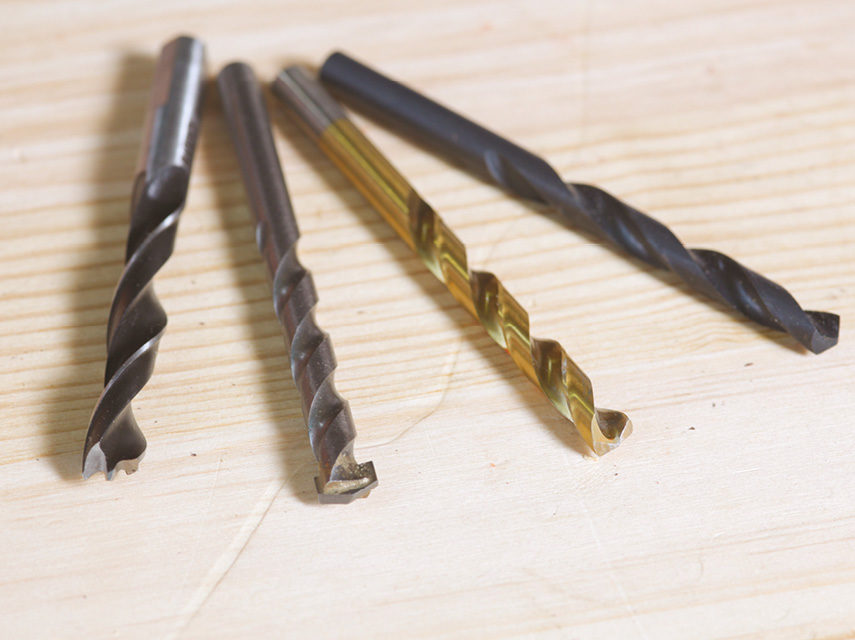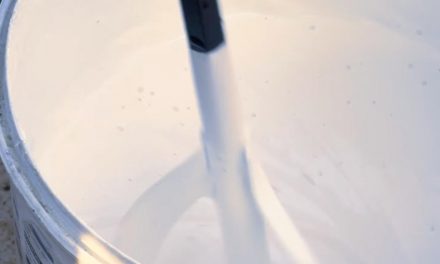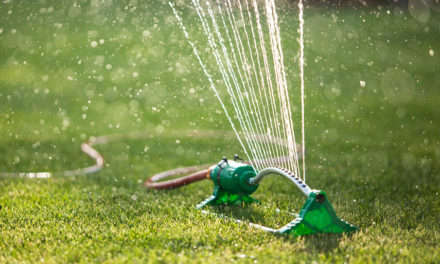Drill bits come in all sizes and are usually designed for use with specific materials.
Masonry bits are for drilling into stone, concrete, bricks and plaster; wood bits for drilling into wood; and steel bits for drilling into metal (although they can also be used on wood and other softer materials). SDS (Special Direct System) bits are required for rotary hammer drills.
What are drill bits made of?
Most universal bits are made of high-speed steel (HSS). Don’t buy low- or high-carbon steel bits. Though they might be cheap, they will require frequent sharpening. High-speed steel (HSS) bits or cobalt steel alloy bits are best. Some bits have tips made of tungsten carbide or other carbides (hard materials which can drill into almost anything). Just the tips are made of this material because it is brittle and costly.
Bit coatings
Bits are also coated to increase their lubricity as well as their resistance to heat and corrosion. The coatings used include black oxide (quite common and inexpensive), titanium nitride (TiN), titanium aluminium nitride (TiAIN), and titanium carbon nitride (TiCN). All can extend the life of a bit up to five times.
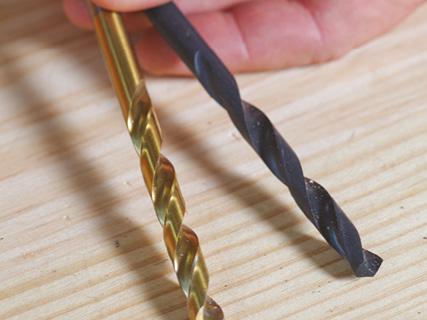
Bit Shapes
1. Twist drill
This is the universal type of bit, used for making holes in wood, metal, plastic and many other materials. Most are made out of high-speed steel (HSS). However, they are not suitable for masonry. Generally, twist drills don’t need pilot holes as they are self-starters. Being general-purpose bits, they are a good choice if you are stocking your tool cupboard and don’t have a particular project in mind.
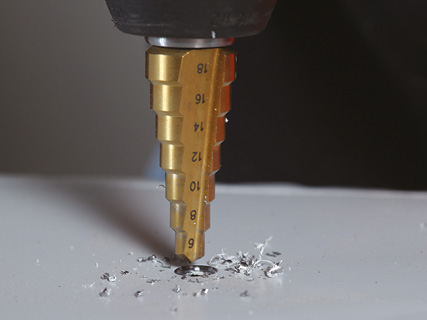
2. Step drill or unibit
This bit is conical in shape with a stepped look. It allows you to drill many different size holes in wood, metal and plastic, all with the one bit. You could use it to drill a hole and then add a countersink recess, or for enlarging a hole you’ve just made with it. These are best suited to sheet metal usage.
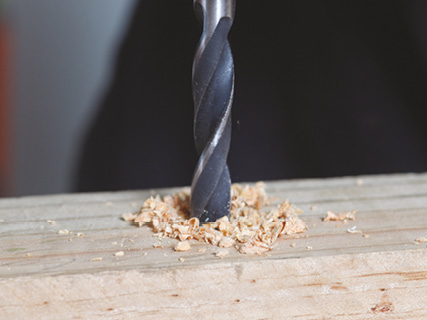
3. Drilling into wood
Additional bits for drilling into wood include the auger bit, for drilling fast clean holes in softer woods; the brad point bit, which reduces the tendency of a twist drill bit to wander when starting a hole; and the paddle or spade bit, for drilling larger holes.
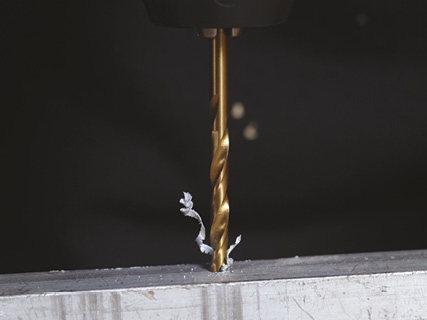
4. Drilling into metal
Additional bits for drilling into metal include the spotting drill bit, used for creating a pilot hole; the core bit, for enlarging an existing hole; and the countersink bit, for creating a countersink hole. Always slow down the speed to prolong the life and performance of the drill bit.
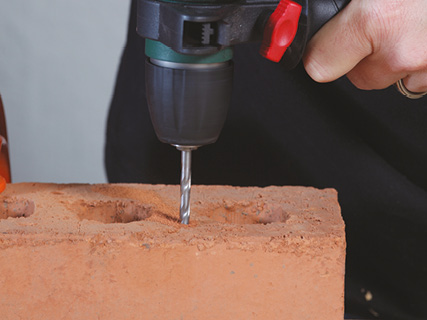
5. Drilling into masonry
The masonry bit is for brick and concrete. Its tungsten carbide tip makes it easy to discern from the other bits in your toolbox. Masonry bits are always used with hammer or impact drills, and are necessary for home DIY projects such as hanging shelves, a heavy mirror or pictures on an internal wall, or fixing a garden basket to a concrete beam, or for installing outdoor lighting.

